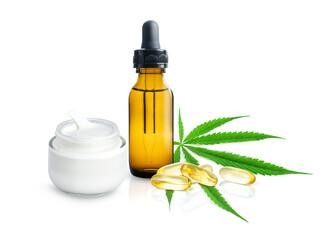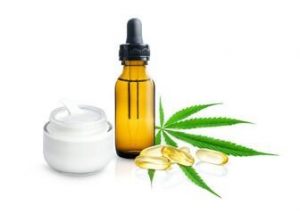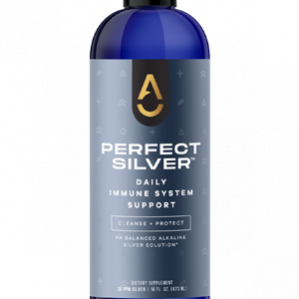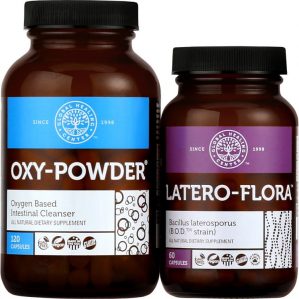Respiratory Support: 6 Important and Healing Essential Oils for respiratory support
6 Important and Healing Essential Oils for respiratory support
Respiratory Support Overview:
You can use essential oils for respiratory support to protect yourself from getting sick by learning about common respiratory diseases. With an aromatherapy inhaler or ultrasonic diffuser, you’ll become addicted to these products.
Respiratory System Complications
You can become susceptible to illnesses such as influenza when you suffer from chronic respiratory diseases in many forms. Take steps to boost your immunity if you have a respiratory illness. To avoid getting sick, you must start as soon as possible. The following are some of the most common chronic diseases that lead to respiratory problems. There are essential oils that can help with respiratory support naturally.
ASTHMA
Asthma is a respiratory illness that results in the spasm of bronchial muscle, swelling of the lung lining, wheezing, increased mucus production resulting in breathlessness, coughing, and chest tightness are common asthma symptoms. It is a chronic disease that constricts the airways in the lungs and causes inflammation. Children are frequently affected by it. According to the Centers for Disease Control, 8.4 % of children under 18 have asthma in the U.S. Approximately 22 million people in the U.S. are affected by Asthma.
An asthmatic patient usually takes medication and avoids triggers to control their condition in people with asthma who are infected by respiratory viruses, their risk of becoming sick increases. For the respiratory support for Asthma, the following essential oils can help::
- Eucalyptus: Helps open up airways, improving bronchial restriction.
- Peppermint: Cleansens the lungs and opens up the bronchial passages.
- Thyme: Helps to clean up lungs for healthier respiratory function.
- Ginger: Reduces mucus production and inflammation of the lungs provides respiratory support.
CHRONIC COUGH
A cough that lasts for more than eight weeks might be considered chronic. After four weeks, children are diagnosed with the disease. This problem can be diagnosed through an X-ray or CT scan, which will help find the cause. The diagnosis of the underlying problem will be necessary for guiding treatment in some cases, as many doctors will proceed with treatment without diagnosing the underlying problem. For the respiratory support for chronic cough, the following essential oils can help:
- Peppermint: Helps open h airways and relieves pain associated with a sore throat.
- Eucalyptus: Helps to cleanse the body of toxins and harmful microbes.
- Lemon and Orange: Helps encourage lymphatic drainage and boost the immune system.
- Thyme: Helps thin mucus in the respiratory system and naturally supports the immune system.
COPD
Described as “chronic inflammatory lung disease that obstructs the lungs’ airflow,” COPD (Chronic Obstructive Pulmonary Disease) is one of the most common respiratory diseases.[2] This condition is characterized by:
- Breathing problems
- The coughing continues
- Breathing difficulties
- Congressional mucus
COPD is the most common cause of death in the U.S., and smoking is the leading cause, although second-hand smoke, exposure to certain fumes, and genetics may also contribute.
Treatment options for COPD include medication, oxygen therapy, exercise, nutrition, and breathing strategies. In severe cases, surgery may be necessary. For the respiratory support for COPD, the following essential oils can help::
- Eucalyptus: Helps to cleanse the body of toxins and harmful microbes.
- Thyme: Helps to clean up lungs for healthier respiratory function.
- Ginger: Reduces mucus production and inflammation of the lungs provides respiratory support.
Fibrosis pulmonaire
Scarred or damaged lung tissue makes it hard to breathe, resulting in this disease. Many factors contribute to it, including:
- Toxin exposure
- Radiation therapy
- The use of chemotherapy drugs
- The use of certain heart medications, antibiotics, and anti-inflammatory drugs
- Diseases and illnesses
Treatment usually includes medications, oxygen therapy, and pulmonary rehabilitation. If the condition is severe, lung transplantation may be required. Essential oils could be an option to provide overall respiratory support naturally for this condition.
Read our other articles and learn to use Essential Oils for better Sleep and Essential for excellent Oral Care
Essential Oils For Respiratory Support
How effective are essential oils for respiratory infections? Lab studies have shown that these oils have antimicrobial effects, including inhibiting viruses and bacteria.
We will discuss the best essential oils for respiratory health, along with how we can use them. Most of these studies were performed in laboratories and not on humans. However, the results are still valid!
EUCALYPTUS
Eucalyptus oil’s potent aroma has attracted a lot of attention for its role in respiratory health research and respiratory support. [1]Eucalyptus oil may benefit COPD patients due to its main compound, cineole, the journal Respiratory Research reported.
Other research found that eucalyptus oil can kill 90% of the bacteria that cause tuberculosis, which can be challenging to treat. Additionally, this oil offers many practical uses around the house, from removing stains to adding a drop to your air filters!
When sick with respiratory disease, socially spread illnesses can be challenging. However, you can prevent colds and flu by taking sensible measures. When taking preventative health measures to stay safe and healthy, receiving accurate information from credible sources like the CDC is crucial. Additionally and in conjunction with consulting your healthcare professional, Eucalyptus oil can be used in diffusers as a respiratory support home remedy
CARDAMOM
Cardamom essential oil has anti-inflammatory properties and is known to be an effective treatment for inflammation in laboratory animals. Cardamom essential oil kills bacteria that cause bad breath and infections and provides respiratory support by improving respiratory conditions.
Cardamom is an expensive cooking spice and is known to aid in digestion in various ways, like ginger. 1,8-cineole is a component of cardamom essential oil found in respiratory poster-oil eucalyptus, the chemical used to treat bronchitis, sinusitis, chronic rhinitis, and asthma. The components Cardamom essential oil can be used as a home remedy for respiratory support.
PEPPERMINT
It’s no surprise to see peppermint oil on this list because many are familiar with its stimulating properties. Researchers in Japan tested peppermint extract on mice with allergic nasal mucosa. People suffering from asthma or allergies may find peppermint oil helpful. Sneezing and nasal rubbing were reduced in mice using peppermint oil.
In addition, influenza and staph viruses are moderately inhibited by it. As a powerful yet pleasant remedy for both congestion and stuffiness, peppermint oil is a great choice.
When using peppermint essential oil, follow professional recommendations, healthcare provider advice, and common sense. Keep in mind that peppermint oil has medicinal qualities and should be handled carefully but is useful for respiratory support.
TEA TREE
There are many known benefits of Tea Tree essential oil, from wound care to combating acne to respiratory support. Antibacterial and antifungal properties have been proven by research. Chinese researchers reported that inhaling tea tree oil had better antifungal properties than fluconazole and similar effects to penicillin in rat models of pneumonia.
The need for antibiotic overuse is significant in this day and age when bacteria, viruses, and fungi are becoming increasingly resistant to drugs, creating superbugs that are immune to treatment. Tea tree oil is an essential tool to have in your arsenal, as the White House made an action plan to support non-traditional approaches for combating infectious diseases in 2015.
ORANGE
The orange essential oil also has superior antioxidant properties, making it a good choice for respiratory support. Moreover, it’s easy and affordable to use, very versatile, and easy to maintain. Especially, if you are just getting started, we recommend using this inexpensive oil over many more expensive oils! The combination of aloe, coconut, peppermint, and vitamin E has anti-inflammatory effects on the respiratory tract.
LAVENDER
Essential oils like lavender help relieve stress, headaches, anxiety, and asthmatic symptoms, and therefore, provide respiratory support. Japan’s scientists studied lavender essential oil and its components linalyl acetate and linalool on a mouse model of asthma in 2017. Asthma and respiratory patients could benefit from its anti-inflammatory properties.
This versatile oil has been used traditionally and in modern research. It blends well with a wide range of other oils.
Respiratory Support Home Remedies
Note: Consult your healthcare professional before implementing any of the recommended home remedies below. These remedies are for adult use only.
Asthma Home Remedy: Mix 2 drops of Eucalyptus, 2 drops of peppermint, 2 drops of Thyme, and 2 drops of Ginger with 1 teaspoon of coconut oil or sweet almond oil. Rub the mixture chest and take deep breaths.
Chronic Cough Home Remedy: Mix 1 drop of lemon oil, 1 drop of frankincense oil, 1 drop of peppermint oil, and 1 drop of Roman chamomile oil with a spoonful of honey and take as needed.
Final Thoughts
Colds or the flu are common upper respiratory infections that make people feel miserable. Treatment usually begins with treating the symptoms. Since ancient times, essential oils have been considered an alternative to pharmaceuticals. Essential oils are a great choice for respiratory support due to their safety profile. An air diffuser is a significant investment that will provide you and your loved ones with years of relief and comfort.
To Your Health!
References
- Cermelli C, Fabio A, Fabio G, Quaglio P (2008). Effect of eucalyptus essential oil on respiratory bacteria and viruses. Curr. Microbiol. 56:89-92.
- Garcha DS, Thurston SJ, Patel AR, Mackay AJ, Goldring JJ, Donaldson GC, McHugh TD, Wedzicha JA (2012). Changes in prevalence and load of airway bacteria using quantitative PCR in stable and exacerbated COPD. Thorax 67:1075-1080.





























1 Comment
[…] <<These Essential Oils Help with Respiratory Support>> […]